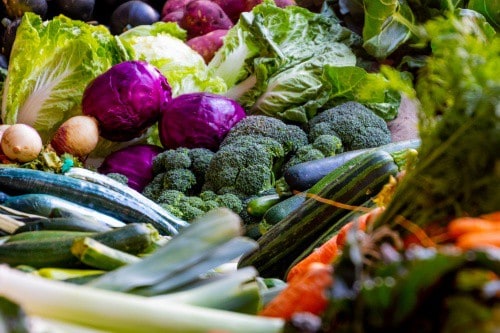With the advent of the Fourth Industrial Revolution, technologies such as big data, robotics, blockchain and the Internet of Things (IoT) will revolutionise traditional farming practices for the better, introducing new food and agricultural solutions.
Indeed, technology is a critical enabler in meeting shifting demands, which will require significant investments across the agri-food industry, according to the recently released “The Asia Food Challenge Report: Harvesting the Future”.
From the development of alternative meat-based proteins, to high-tech plant factories that deliver a 400-fold increase over traditional methods, to modern aquaculture that will significantly reduce fish mortality and pollution levels to improve output especially for small scale farmers, there is great potential to explore these technologically-driven innovations.
"Asia needs innovation and technology to transform its Agri-Food system into one that is ecologically and economically sustainable. Only through working together with shared responsibility and acting now can Asia feed itself while preserving the planet for future generations,” said Ping Chew, head of RaboResearch for food and agribusiness – Asia at Rabobank.
Rabobank was one of three collaborators, which included PwC and Temasek, who put the 63-page report together. It was launched last week in conjunction with this year's Asia-Pacific Agri-Food Innovation Week in Singapore.
“Innovating for sustainability can also bring about value creation, and there are huge opportunities shifting into a more sustainable model that can tackle waste and supply chain inefficiency, produce higher yields, create platforms to connect, and introduce new products and processes,” Chew said.
Lagging behind investments in innovation
The report however revealed that investment in Asia's agri-food sector is lagging behind other regions, particularly North America and Western Europe, due in part to the sheer diversity of countries, their varying levels of economic development, and regulatory systems.
To overcome these challenges, greater collaboration and shared responsibility between the public and private sectors in the region must be established. This involves stronger backing from governments in terms of policies and legislations that support new technologies and innovations, as well as the formation of corporate venture capital teams and incubators.
Anuj Maheshwari, managing director of Agribusiness at Temasek, said: "A fundamental change is required across the entire food supply chain in Asia to enable and sustain the region's food security. We see immense opportunities for start-ups, businesses and governments to work together in creating innovative solutions that can transform our global food systems.”
“Sustainability is a key focus for us at Temasek, and we remain committed to deploying our capital purposefully across the whole Agri-Food value chain, as we invest for a better, smarter and more sustainable world,” he added.
The report recommended the establishment of agri-food innovation centres to bring together relevant market players in the ecosystem, such as Tel Aviv, St Louis, San Francisco and Rotterdam. These hubs or gateways would involve the public sector fostering a suitable environment for startups, corporations and investors, with the private sector a critical driving force.
It added that several Asian cities, such as Beijing, Hong Kong, Mumbai, Singapore and Tokyo, also have the potential to become Agri-Food innovation hubs.
Key criteria for success, including positive regulatory environments for startups and investment, technical expertise, talent, and a strong pool of investors, can be found in these cities. For one, Singapore has already set in motion a range of government policies and initiatives to tackle food insecurity and develop itself into an agri-food innovation hub. The city’s Singapore Food Agency has also set a goal to produce 30% of the country's nutritional needs by 2030 by adopting new solutions and technologies to grow more with less.
Building a sustainable food supply for Asia
As countries around the world grapple with food shortage and the effects of climate change, the report addresses the challenges and opportunities that Asia's Agri-Food industry face. The region is urbanising rapidly and by 2030, it will be home to approximately 250 million more people who have a growing appetite for healthy food that is sustainably and ethically sourced.
The report estimates that cumulative investment of US$800 billion above existing levels over the next 10 years will be needed to grow Asia's food and agriculture industry to a sustainable size, in order for Asia to feed itself.
The majority of these investments – around US$550 billion – will enable key requirements around sustainability, safety, health and convenience. The remaining US$250 billion will drive increased quantities of food to feed Asia's growing population.
“Asia faces a crossroads. On the one hand, current lack of investment, and the slow development and use of technology across the food & agriculture supply chain has held us back and left us dependent on others,” said Richard Skinner, Asia Pacific deals strategy & operations leader, PwC Singapore.
“On the other, we can reverse that by being at the forefront of technological innovation, disruption and use, transforming the industry and bringing benefits to the consumer, returns to corporates & investors and value adding jobs across Asia,” Skinner said.
Together, the investments will unlock market growth of around 7% per year, with the region more than doubling its total spend on food to over US$8 trillion by 2030. This presents a huge opportunity for corporations and investors to invest in Asia's Agri-Food industry by placing a stronger focus on promising high-impact innovations.



